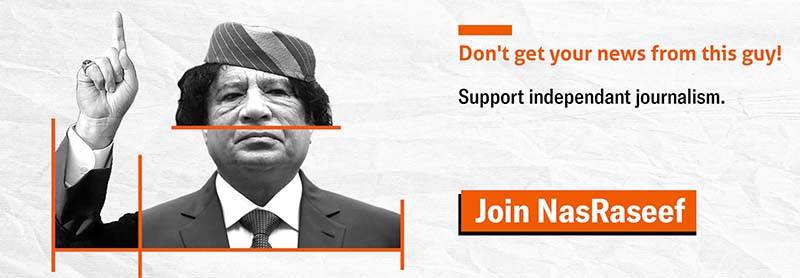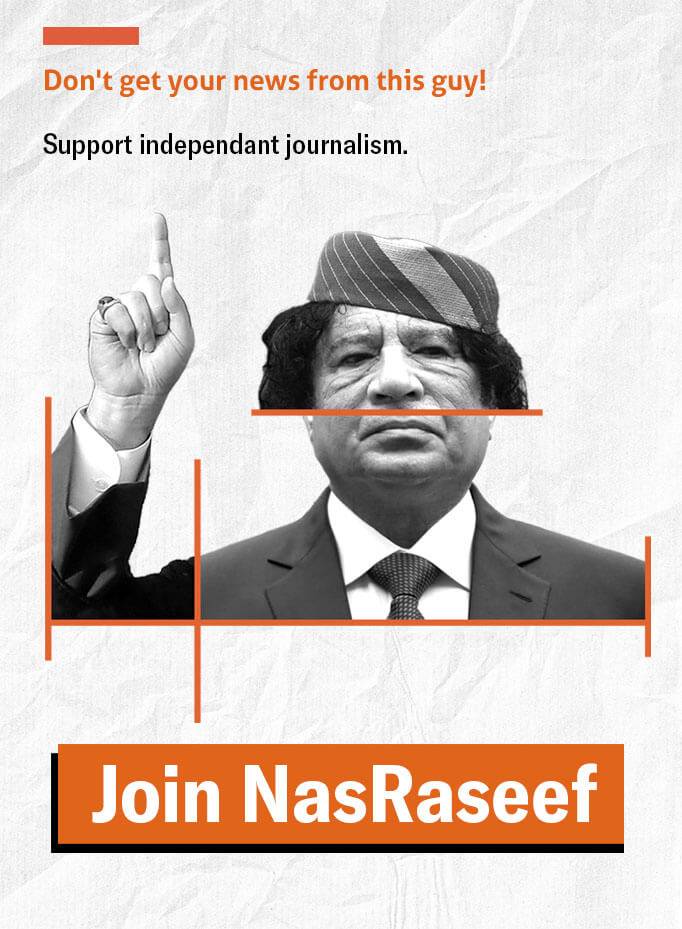Two days after Amal Habbani’s release from prison, she is entertaining guests in her garden. They are civil society leaders, writers, political activists – almost all women - and an oud player is singing old Sudanese songs to celebrate her freedom. Amal is one of Sudan’s leading journalists and has been imprisoned many times over the last few years for her social activism and outspoken criticism of the government. In January this year she was beaten by the police and imprisoned for 34 days, along with many other demonstrators who were peacefully protesting against the increase in food prices.
The price of bread in Sudan more than doubled overnight at the beginning of the year, and millions are now struggling to afford everyday necessities. The first public demonstration was organized by a women’s group, led by a group of influential activists including Amal Habbani. A few days later the protests gathered momentum as the main parties of the political opposition began working together for the first time to mobilise their supporters, news of the movement spread through social media, and thousands of people took to the streets.
Amal herself has long been committed to using both writing and peaceful demonstrations as tools for social change. She won the 2015 Amnesty International award for her work on women’s rights and is a fierce critic of the regime, particularly the laws that discriminate against women. “To renew the state we have to build a political system that’s separate from religion, from Islam. We have to claim women’s rights as well as human rights”, she says. And political and legal change must come first: “Society treats women badly because the state treats women badly.”
Amal emphasises that the current price rises affect everyone in Sudan, but the impact on women – who are responsible for family life but often find it harder to get work - is particularly severe: “The economic crisis is a women’s issue”. For her, the ongoing protests are part of the struggle for women’s rights and social justice.
The current legal system is deeply discriminatory against women: a woman cannot leave the country with her children unless she has her husband’s permission, for example, and male guardianship leaves women powerless to make their own decisions in many areas. Women in Sudan experience institutionalised oppression at all levels, particularly under the Public Order Act, and can face arrest, imprisonment, and punishment of up to forty lashes for “indecent and immoral acts”. What constitutes ‘indecency’ is largely left to the judgement of the police, who can detain women they consider to be behaving inappropriately or dressing immodestly, as in the 2009 case of journalist Lubna Hussein who was arrested for wearing trousers. Thousands more women are sentenced under this law every year.
The Public Order laws weigh most heavily on socially marginalised women, like the tea sellers. On every street corner in Khartoum, in the shade of a tree or a high-rise building, sittat al-shay or ‘tea ladies’ pitch their stalls and men gather to drink spiced coffee and mint tea. It is impossible to imagine the city without them. Yet they suffer constant harassment from police, and are frequently accused of prostitution, drug dealing, or simply ‘indecency’. Their tea stalls can be confiscated and they can be detained at any time. Most of these women are struggling to make ends meet, and rising prices and police harassment make this increasingly difficult.
But women in Sudan are claiming their rights despite the law. The tea sellers have formed their own union and support each other in resisting attempts to stop them working. “These women are very strong”, Amal insists. “Today you see women who work in cafes or shops coming home late from work, even if the government tries to stop them, and it’s completely normal. Twenty years ago that was rare. Nowadays women travel abroad for business, for conferences. Even though the political situation keeps making things harder, society is changing.
Mobile phones and access to the Internet have accelerated the women’s movement, according to Amal. “Whatsapp has been in Sudan for five or six years now, and people aren’t the same as before. Especially women, because in a conservative society they face so many barriers. The door is locked – don’t go out. The walls are higher – don’t jump over them. But now everything can come in. You can stay at home, take your phone, and speak to everyone, anywhere, anytime. This empowers women, and no one can stop it.”
In 2009 Amal and other activists established the “No to Women’s Oppression Initiative” to challenge state violence against women, organising public demonstrations and providing legal help for women targeted by the law, particularly vulnerable groups such as the tea sellers. Since then she has been arrested time and time again, most recently last year when she was sentenced to four months’ imprisonment for her work with an activist group. A security official assaulted her, and then brought a case against her for obstructing his work. She received so many donations from supporters that she was able to pay for the release of around twenty other women who had been imprisoned under the Public Order Act. The case received a great deal of publicity and she considers it a victory, even though the violence she suffered has left her with recurring headaches and hypertension.
Political change is the key, she insists, before the laws can be reformed and social attitudes towards women addressed. Opposition to the government has been increasing, and the current economic crisis is mobilising more resistance. In prison, she noticed that many of her fellow prisoners were young women who had been demonstrating for the first time. “We’re coming to a moment of change in Sudan. Perhaps not right now, but it’s coming. So many people are working for change, even though they’re not recognised in the media.”
Millions of Sudanese people have moved abroad in search of a better life. But Amal does not consider this option. “Sudan is my home. My roots, my identity, my family is here. I don’t see taking my children and moving abroad as a solution. We have to stay here and try to change the situation. A child from the Nuba mountains deserves to live in peace, to be healthy, to have a good education, to have access to computers, just like a child in Europe or America. There’s no difference.
“Outside my house, I see hundreds of children living on the streets with no access to housing, education or social support. It’s a huge problem. There are so many displaced people coming from conflict areas, from South Sudan, and they’re human beings: they should be able to live with dignity. Hundreds of children are eating from the trash, not going to school, and no one feels responsible. The government simply ignores them.”
The Sudanese president, Omar al-Bashir, has been in power for nearly thirty years. Change will not come easily, but Amal is determined that it will happen, and happen peacefully. “Sudan came late to the Arab Spring, and in some ways it’s had a negative impact. People see what’s happening in Syria, in Yemen, and it makes them afraid of change,” she says. “But I believe that it’s possible to change the system without a civil war. It can be a peaceful movement. The demonstrations will continue, and the elections in 2020 can be a moment for real positive change.”
Hundreds of activists, opposition figures, and demonstrators remain in detention. But more and more people in Sudan – both the women’s movement and other groups demanding social justice – are making themselves heard.


Raseef22 is a not for profit entity. Our focus is on quality journalism. Every contribution to the NasRaseef membership goes directly towards journalism production. We stand independent, not accepting corporate sponsorships, sponsored content or political funding.
Support our mission to keep Raseef22 available to all readers by clicking here!




Join the Conversation
Tayma Shrit -
1 day agoمدينتي التي فارقتها منذ أكثر من 10 سنين، مختلفة وغريبة جداً عمّا كانت سابقاً، للأسف.
Tayma Shrit -
1 day agoمدينتي التي فارقتها منذ أكثر من 10 سنين، مختلفة وغريبة جداً عمّا كانت سابقاً، للأسف.
Anonymous user -
1 day agoفوزي رياض الشاذلي: هل هناك موقع إلكتروني أو صحيفة أو مجلة في الدول العربية لا تتطرق فيها يوميا...
Anonymous user -
1 day agoاهم نتيجة للرد الايراني الذي أعلنه قبل ساعات قبل حدوثه ، والذي كان لاينوي فيه احداث أضرار...
Tester WhiteBeard -
2 days agoEgypt
Tester WhiteBeard -
2 days agoGreat